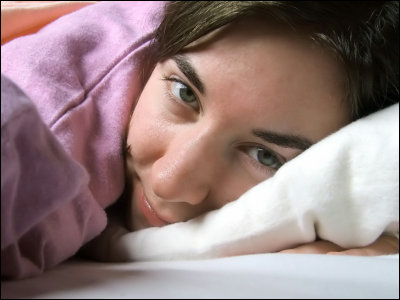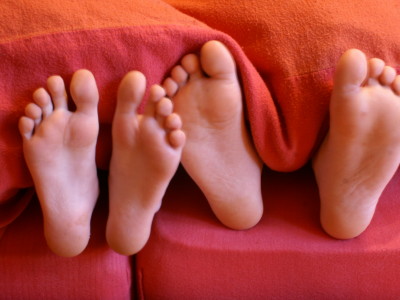Do 'heavy weighted blankets' really help you sleep better?

As a type of sleep aid, there is a product called 'weighted blanket' that is heavier than a regular blanket. Weighted blanket manufacturers advertise the relaxing effects, but Professor Craig Jackson, who studies health psychology at Birmingham City University, explains whether weighted blankets are really effective.
Do weighted blankets work for anxiety? Here's what the evidence shows
https://theconversation.com/do-weighted-blankets-work-for-anxiety-heres-what-the-evidence-shows-263591
Weighted blankets are products that have weights such as glass beads stuffed inside the blanket, and some products can weigh as much as 10 kg. Weighted blankets are becoming popular in Japan as a sleep aid, and a wide variety of products are available on the market. Some weights are available in a variety of weights, such as the following product, which comes in multiple weights such as 4.5 kg, 5.5 kg, 7 kg, and 9 kg.
Amazon | YnM Weighted Blanket, 152*203cm, 9kg Capacity, Weight Range: 60-86kg, Heavy Duvet Blanket, 100% Cotton, Washable... | Blankets & Throws Online Store

Weighted blanket manufacturers and influencers tout the benefits of weighted blankets, claiming that 'the right amount of weight creates a relaxing effect' and 'providing a certain amount of pressure creates better sleep.' While the effectiveness of weighted blankets has been confirmed in studies targeting psychiatric patients, Professor Jackson points out that 'there is a gap between science and marketing,' and questions the effectiveness of weighted blankets for healthy people.
For example, in a study of 120 psychiatric patients with severe depression, bipolar disorder, anxiety, and ADHD, weighted blankets were used. The results showed that insomnia symptoms improved after four weeks of use. Based on these results, the research team concluded that weighted blankets are a safe and effective intervention for insomnia in some patients with psychiatric disorders.
In addition, in a study of 32 subjects , 63% of subjects saw an improvement in anxiety, and in a study of psychiatric inpatients , 60% saw an improvement in anxiety.
However, the above studies were conducted on psychiatric patients, and it has not been scientifically confirmed whether the same effects are seen in healthy people without mental illnesses. Furthermore, Professor Jackson points out that 'half of the studies on weighted blankets are not of a quality that can be used as scientific evidence.'
However, Professor Jackson does not completely deny the effectiveness of weighted blankets. He points out that they may be useful in 'mitigating the adverse effects of irregular work schedules, including night shifts,' and 'promoting sleep in people who require planned short-term sleep, such as firefighters and pilots.' He also points out that the belief that 'weighted blankets help you sleep well' (placebo effect) may lead to positive results.

Professor Jackson's advice to anyone considering buying a weighted blanket is to 'set realistic expectations. Weighted blankets are not a miracle cure for modern anxiety,' he says. 'Even if the effectiveness of a weighted blanket isn't based on science, the comfortable pressure it provides may be worth the investment.'
Professor Jackson also urges people with conditions such as diabetes, sleep apnea, asthma, chronic obstructive pulmonary disease (COPD), cardiovascular disease, high blood pressure, and claustrophobia to consult a doctor before using a weighted blanket.
Related Posts:
in Free Member, Science, Posted by log1o_hf







